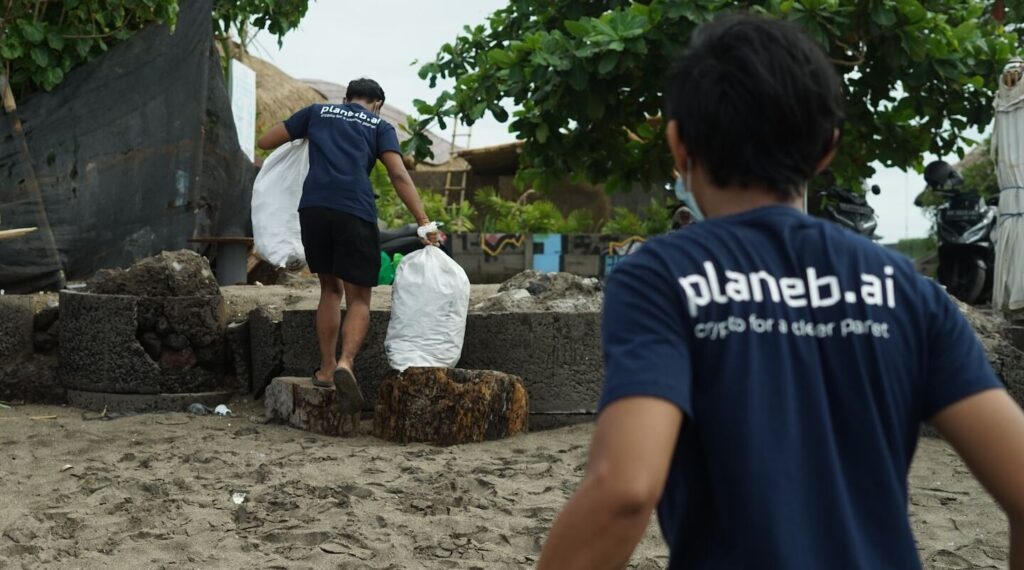Philanthropy is getting ready for “radical collaboration” – for people & planet

It took me by surprise when I learned that governments are “investing” $7 trillion annually into our own destruction rather than into health, education and reducing poverty. This is a conclusion Christiana Figueres, the former Executive Secretary of the UNFCCC, drew recently from the World Bank Report “DETOX Development – repurposing environmentally harmful subsidies” published on 15 June 2023. This report states that $7 trillion of annual subsidies for fossil fuels, agriculture, and fisheries are driving the degradation of these assets and harming people, the planet, and economies.
UNFCCC calls for radical collaboration
On the same day as this report was released, I attended the first of three Systemic Innovation workshops hosted by the UNFCCC’s Global Innovation Hub in Bonn, Germany. More than 100 experts from the public and private sector, philanthropy and civil society came together in person and online to start a global movement for cities transformation. The workshop’s host, Massamba Thioye, called for radical collaboration across sectors and geographies in order to upscale and accelerate the deployment of existing transformative climate and sustainability solutions.
Experts during this meeting on the 19th floor of the “Langer Eugen” tower overlooking the beautiful Rhein river in Bonn, identified gaps in the collaboration for transforming cities: the lack of responsiveness, scale and speed have been mentioned over and over again. Also, the lack of data for evidence-based decision making is holding back progress. A key ask was about putting citizens in the center of transformational processes to not miss the opportunity of leveraging local knowledge and creating co-ownership. And finally, there was a strong call for combining public funding and private investments – for societal impact, and not only for maximising profits, as is reportedly often the case with traditional PPPs.
How can philanthropy best collaborate with the public and private sectors?
One key question arising out of this discussion for foundations is HOW can philanthropy best collaborate with the public and the private sector to leverage societal impact at scale
- to ensure that the $7 trillion of annual subsidies are spent for education, health and poverty reduction rather than for advancing the destruction of humanity
- to prevent ocean warming, biodiversity loss and the melting of the ice shield surpassing tipping points
- and most importantly, to drive transformational change for a resilient society
Already today we understand the potential of philanthropy leveraging its flexible capital, diverse networks, strong reputation and technical expertise in transformational public-private-philanthropy partnerships (PPPPs). These respond well to the gaps identified at the ongoing cities transformation projects at the UNFCCC Systemic Innovation workshop on 15 June in Bonn.
I firmly believe that PPPPs can have a huge role in reimagining the system, reducing barriers for collaboration and advocating for change. Such PPPPs will require pathways to action for philanthropy: Foundations will need to have confidence around partnering up with the public and private sectors. They need conceptual clarity, and exposure to successful models and best practices for effective PPPPs. They also need both private and public sectors to understand the potential role of philanthropy.
If we are to benefit from such pathways to action, then development of individual mindsets and skillsets as well as organisational cultures and practices will also be needed in support of PPPPs.
What specific roles can philanthropy play to leverage impact at scale?
The Partnering Initiative, TPI, in cooperation with the World Association of PPP Units and Professionals, WAPPP, launched the PPPPs for People & Planet programme – supported by Philea – to create pathways to action for philanthropy in transformative PPPPs addressing the challenges humanity is facing today. In order to achieve this, TPI and WAPPP invited more than 25 organisations from around the world to share PPPP examples from their respective networks and beyond through this survey. These examples will contribute to TPI’s research on how PPPPs work and what specific roles philanthropy can play to leverage impact at scale in partnering with the public and private sectors. The insights will be shared and discussed across the PPPP ecosystem from October 2023.
But I realise that only very few foundations today bring these game changing qualities to public-private-philanthropy partnerships addressing the climate crisis and other systemic threats facing humanity. Whenever foundations get involved in PPPPs, outstanding things happen, like with the CLEF project from Jacobs Foundation and UBS Optimus in Ivory Coast, successfully fighting child labour; the Connect Humanity Fund involving amongst others Charles Steward Mott Foundation, Ford Foundation, and Hilton Foundation, providing internet infrastructure in remote areas of the world; and the Global Energy Alliance for People & Planet, GEAPP, initiated by Bezos Fund, Ikea Foundation and Rockefeller Foundation, driving energy transition currently across 13 countries in the global South.
Philanthropy has the potential for bolder, more ambitious and impact driven partnerships
World leaders and civil society organisations are calling for bolder, more ambitious and impact driven partnerships to join forces in the transition towards resilient ecosystems, societies and economies. I am optimistic that foundations around the world would step up their partnership game. The UNFCCC’s Global Innovation Hub is successfully engaging with foundations as part of the Systemic Change workshop series on cities transformation. Moreover, the World Economic Forum’s GAEA initiative is gaining ground with philanthropy around the world for its ambitious and very needed target of unlocking $3 trillion a year for equitable climate and nature solutions. Additionally, a good number of national and local PPPP initiatives are emerging such as the Bucharest Environment Platform, coordinated by the local community foundation.
Get involved for more and better partnerships
Philea invites you to share your PPPP examples at this survey.
They will be reflected in the global Landscape Analysis currently exercised by TPI and you will be one of the first seeing the outcome of this work. If you want to get involved to the global Learning Space at the PPPPs for People & Planet programme, please feel free to join the TPI and WAPPP community on PPPPs for People & Planet by filling in this online form. You can also send your experiences dealing with public private philanthropy partnerships to Hanna Hanses, Policy Manager, Philea.
Authors

